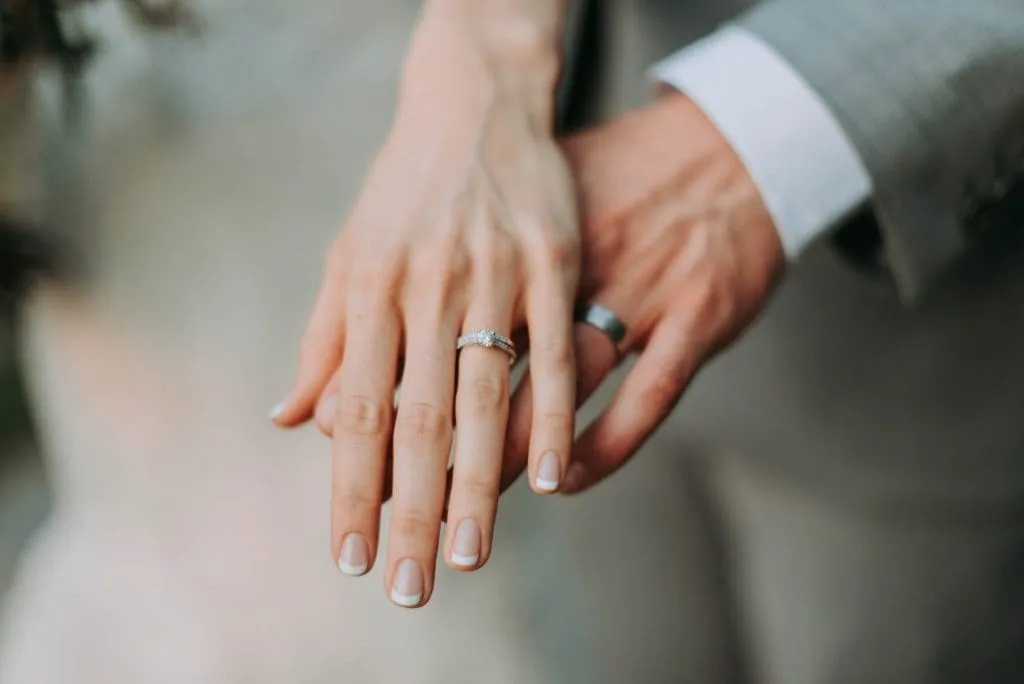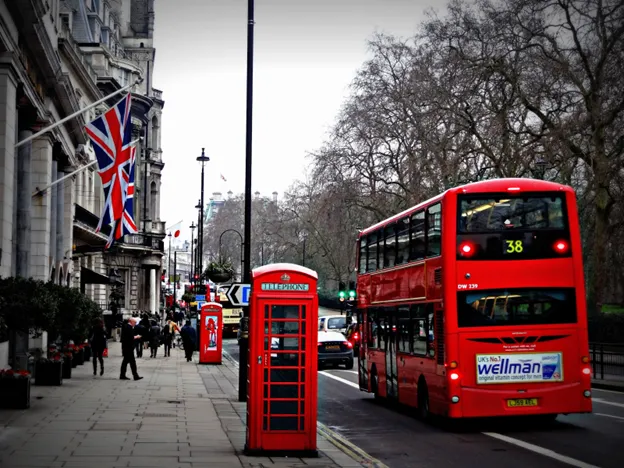Can an undocumented immigrant get married?
People who are living in the UK with an undocumented immigration status will find it difficult to marry legally.
If you need support with your immigration status, contact us today to see how our specialist immigration lawyers can help you on 0333 305 9375 or use the contact form to get in touch with our advisers.
Read our 1001 reviews
Can an illegal immigrant get married in the UK?
Your legal immigration and marital status are very important when it comes to your rights in the UK. If an illegal immigrant wants to get married, they face significant barriers, and it is likely impossible to marry legally with undocumented migrant status.
People who come to the UK legally to join their partner in a marriage or civil partnership must submit the appropriate visa application based on their circumstances. This process is typically expensive and time-consuming.
Recently, it has become more difficult to prove the validity of a ‘genuine and subsisting’ relationship between two partners who wish to marry in the UK. There have been instances of invasive checks by the Home Office into the nature of a couple’s relationship.
This article outlines the ways in which a legal marriage is conducted in the UK, the difficulties that illegal immigrants will face if they want to get married in the UK and outline the path towards legal immigration status and marriage.
Who can legally marry in the UK?
Not everyone who wants to marry in the UK has the legal ability to do so. As an institution, marriage gives additional rights to the married couple and is therefore overseen by government agencies to ensure compliance with the relevant legislation.
People who cannot marry in the UK include people under the age of 16, people who have a ‘prohibited degree’ of relationship, and those who are already married. A civil partnership and a marriage are treated in the same way in this context, therefore the term ‘marriage’ will be used interchangeably here with ‘civil partnership.’
Under the European Convention on Human Rights, all other categories of people have the right to marry.
How to get married in the UK
In order to marry your partner, you should give notice at a registrar office at least 29 days before you plan to marry. You must provide original documents of the following:
- Proof of address
- Valid passport or travel document
- UK birth certificate or national identity card (if from inside the EEA)
- Passport sized photo of both partners (if one is from outside the EEA)
- Proof of immigration status (e.g., a visa)
- Translation of any of your official documents that are in a language other than English
If one partner is not a British citizen, is from outside the EEA, or does not have indefinite leave to remain, they must apply for a visa to get married, and give notice at a designated register office.
If this applies to your situation, you and your partner must decide the best route to get married based on your individual circumstances. This could include applying for a Marriage Visitor Visa, a Family Visa or a family permit.
If you plan to go ahead with your wedding without obtaining the correct category of visa, you can still give notice of your intention to get married. Please note that UK immigration authorities will be notified of this.
In the event that the Home Office investigates your immigration status and the nature of your relationship, you may have to postpone your marriage for up to 70 days. If the Home Office refuses to approve your notice, you legally cannot marry in the UK.
Unrecognised (‘sham’) marriages in the UK
There has been a lot of controversy in the UK over the topic of ‘sham marriages,’ which are also known as ‘marriages of convenience.’ This is defined as a marriage that is not based on a genuine and subsisting relationship and is instead being conducted for the purposes of achieving a particular immigration status.
When the Home Office receives notice that a couple intends to marry and one of the partners is from a non-EEA country, they will ascertain whether the following points apply to the case:
- If an individual has a visa or limited leave to remain but is unlikely to be able to extend their visa
- If the individual has been refused a visa extension of limited leave to remain
- If an individual has overstayed their visa or has entered the UK illegally
Under these circumstances, the Home Office may undertake an investigation into the nature of the relationship based on the premise that the application for marrying is being undertaken solely for immigration purposes.
Marrying solely for the purposes of achieving a regular (or legal) immigration status is a criminal offence and carries strict penalties for anyone engaging in or facilitating the marriage.
Actions taken in these cases can include home visits to ascertain whether the relationship is genuine, arrests and/ or removals from the UK, or prosecutions of those involved in facilitating the marriage.

Becoming compliant with immigration rules
If an illegal immigrant wants to marry in the UK, it is recommended to ensure that you first have a legal immigration status to avoid facing suspicion of a ‘sham’ marriage.
If you have entered the UK illegally or if you have overstayed your visa and are no longer allowed to remain in the UK, there may be some options that you can consider.
Some of the available options include:
- Claiming asylum (where applicable to the applicant’s circumstances)
- Your partner is a UK national or a citizen of an EU or EEA country
- Certain forms of Human Rights legislation allow you to stay
- You have child dependents who were born in the UK who have lived in the UK for over 7 years
- You have been a victim of domestic abuse
- Leaving the UK and returning with a new application
If you are seeking assistance with your immigration status and want to know how you can remain in the UK, contact the Immigration Advice Service today for a discussion on how we can help you and your case.
We are available to speak over the phone at 0333 305 9375 or via the online contact form.
Options for marrying in the UK
If you are an undocumented immigrant, there are some routes available to you if you wish to get married and remain in the UK.
For some couples, it may be a more viable option to legally marry outside of the UK and then apply to come to the UK under a form of Partner Visa permissions. The aim would then be to obtain indefinite leave to remain.
However, it is important to note that if a couple intend to apply for a Spouse Visa to settle in the UK, there is a significant threshold to prove that the applicants are in a genuine marriage and that they meet the Spouse Visa requirements as outlined by the Home Office.
There is also a requirement that stipulates that applicants must have a good immigration record and that they fulfil the suitability requirements of the Spouse Visa.
For some applicants, it is possible to come to the UK on a short-term basis for the purposes of marrying your partner under a permission known as the Marriage Visitor Visa. This does not give the holder the right to stay in the UK (and it is not the same as indefinite leave to remain), but may make the process of joining your partner permanently in the UK easier.
There is an immigration route known as the Unmarried Partner Visa route. This enables couples who are in a de facto marriage-like relationship (but who are not legally married) to live with their partner in the UK.
Route to citizenship
If you are granted a Spouse Visa, you will be able to stay in the UK for 33 months (if you applied outside the UK) or 30 months (if you applied from the UK). This visa can be extended for another 30 months if you meet the eligibility criteria.
Following this extension, you may be able to apply for indefinite leave to remain if you fulfil the immigration requirements. It is important to note that being married to a British citizen (or person with settled status in the UK) does not automatically grant citizenship to their spouse.
However, if you hold indefinite leave to remain for one year, you may be eligible to apply for British citizenship. There is an application process and suitability requirements in order to be granted indefinite leave to remain.
Holding British citizenship allows you the same rights as British citizens. You may live, work, and study in the UK without restriction. Similarly, you will be granted a British passport and will be able to travel with the same rights as British citizens.
Do you need immigration advice?
At the Immigration Advice Service, we help people with all areas of immigration law. If you are an undocumented immigrant who wants to know more about their options for marrying your partner and living in the UK, contact us for a discussion on how we can support you.
Our team of specialist immigration solicitors are highly qualified and trained in all aspects of immigration law. We will be able to work with you on your case to explore your legal options and decide what is best for you and your partner.
When you engage the services of an immigration lawyer, you will receive our support through each stage of the process. We can assist with immigration matters including applications, appeals, immigration detention, and asylum cases. We will provide you with comprehensive information on your eligibility for visas and help you decide what option is right for you.
If you need urgent assistance, contact us directly on 0333 305 9375 for a confidential discussion or use the contact form to speak with one of our expert advisers. You can get in touch with our London, Manchester, or Birmingham immigration lawyers, or alternatively, check our office finder for your closest branch.
Table of Contents
Table of Contents will appear here.Table of Contents
Table of Contents will appear here.Legal Disclaimer
The information provided is for general informational purposes only and does not constitute legal advice. While we make every effort to ensure accuracy, the law may change, and the information may not reflect the most current legal developments. No warranty is given regarding the accuracy or completeness of the information, and we do not accept liability in such cases. We recommend consulting with a qualified lawyer at Immigration Advice Service before making any decisions based on the content provided.















